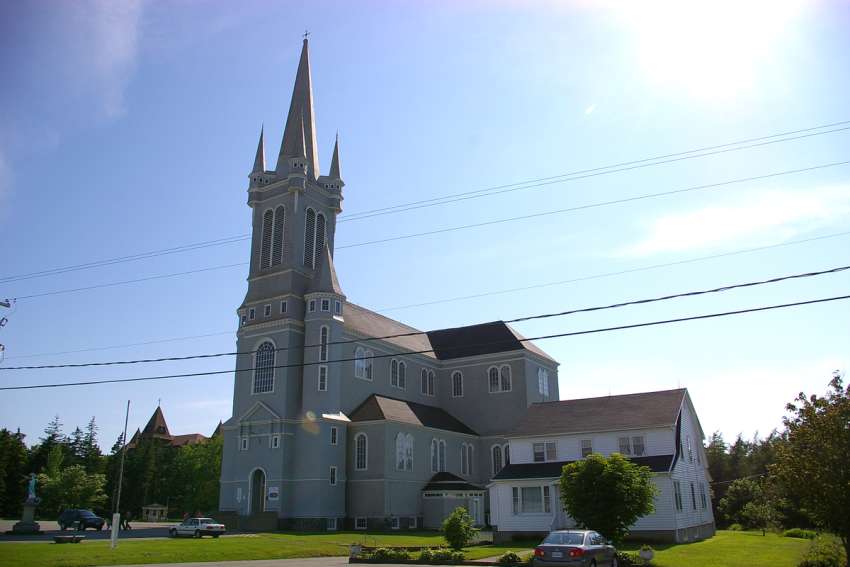Fashioned by carpenter Léo Melanson, who was honoured with a medal in 1944 by Pope Pius XII for his work, the church has been revered by the local Acadian community since the doors first opened in 1905.
“It is such a beautiful building,” said Archbishop Brian Dunn of Halifax-Yarmouth. “Mass has not been celebrated there since 2019. A society was trying to raise funds to use the building for other reasons, but they’ve come to the point now where they can’t raise any more money.”
The Société Édifice Sainte-Marie De La Pointe (Saint-Marie Building Preservation Society) sought to convert the house of worship into a multi-purpose hall. However, continually rising repair costs stretched into millions of dollars, ultimately forcing the group to abandon its efforts before the end of 2022.
“We’re quite sad, and we’re disappointed that it came to that,” Pierre Comeau, president of the society, told the CBC.
In mid-December, the Halifax-Yarmouth archdiocese opened the floor to applications to either purchase the building or demolish it to use the land for another purpose. John Kennedy, the archdiocese’s financial administrator, wrote in his letter that “preference will be given to proposals that maintain the building in some form.” And if no concrete offers emerge to maintain the building, “then preference will be given to proposals that give back to the community in some way, during demolition.”
Proposals were supposed to be submitted by noon local time on Monday, Jan. 30. Dunn told The Catholic Register that the archdiocese “has had a few requests for the building, but nothing concrete.” He added that they are willing to extend the proposal deadline into February, “but there comes the point where we have to decide what to do with this building.”
The Code of the Canon Law has decrees that archdioceses and dioceses must follow in selling former divine houses of worship. According to Canon 1222 paragraph 1, “if a church cannot be used in any way for divine worship and there is no possibility of repairing it, the diocesan bishop can relegate it to profane but not sordid use.”
Dunn is well versed in these rules as he completed Code of Canon Law studies in 1991 at Saint Paul University in Ottawa. As Bishop of the Diocese of Antigonish from 2009 to 2019, Dunn said he had to deal with the closure of 32 churches.
Since assuming his current role in Halifax-Yarmouth, Dunn has overseen 12 closures.
“So, what is ‘sordid use’,” said Dunn. “In many ways, that is a local or diocesan decision because the Church hasn’t given us guidelines of what is considered a sordid use. Since the building has been secularized, there is lots of openness to sell. In my experience, I’ve been involved in sales where the buyer wants to use the building as an apartment or condo living quarters.”
Cardinal Sean Patrick O’Malley, the archbishop of Boston since 2003, articulated what could be considered sordid use in a policy document to sell Church buildings.
“The essence of this Canon’s requirement is the obligation of the Archbishop to prevent uses of Catholic church buildings that would give offense to members of the faithful or be detrimental to their understanding or practice of the Catholic Faith, or that would offend against Catholic belief or practice in any other way. In this regard, the Archbishop must take measures to prevent a Catholic Church building from being used in ways that might draw Catholics away from the Church or otherwise damage their faith or practice.”
Based on this understanding, some examples of “sordid use” could be converting a Church into an abortion clinic, a bar or night club, or the headquarters of a non-profit or political organization with anti-Christian leanings.

